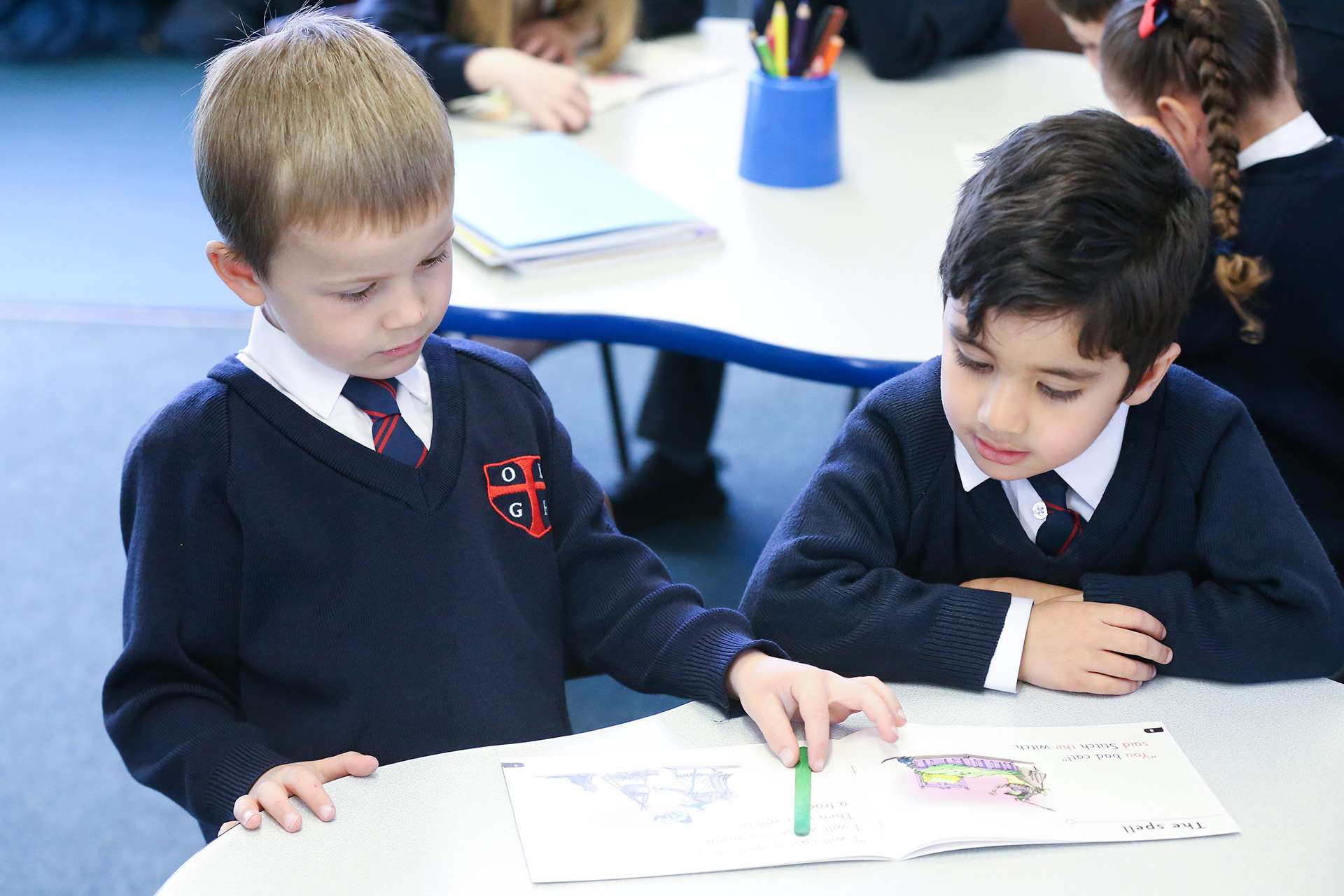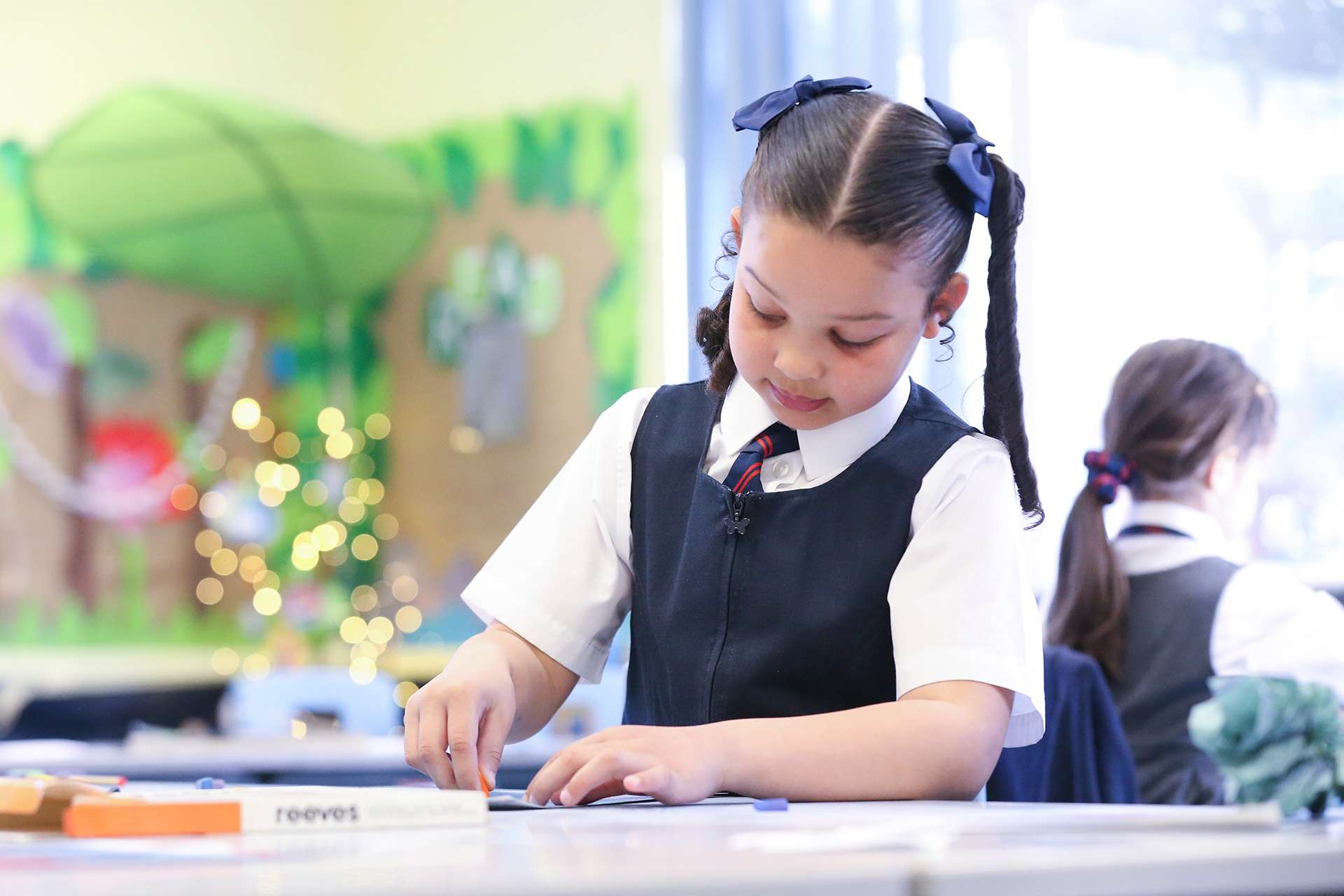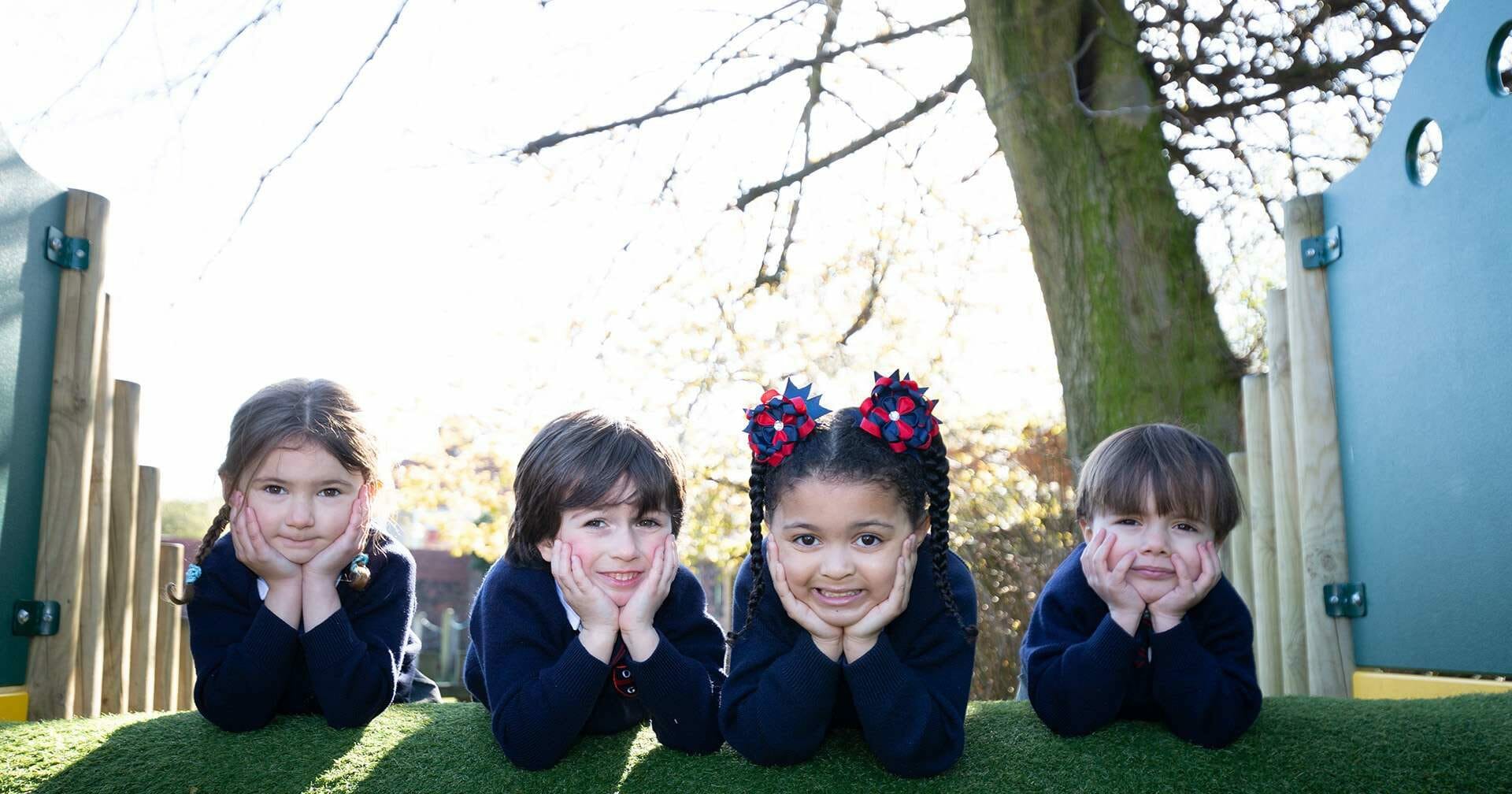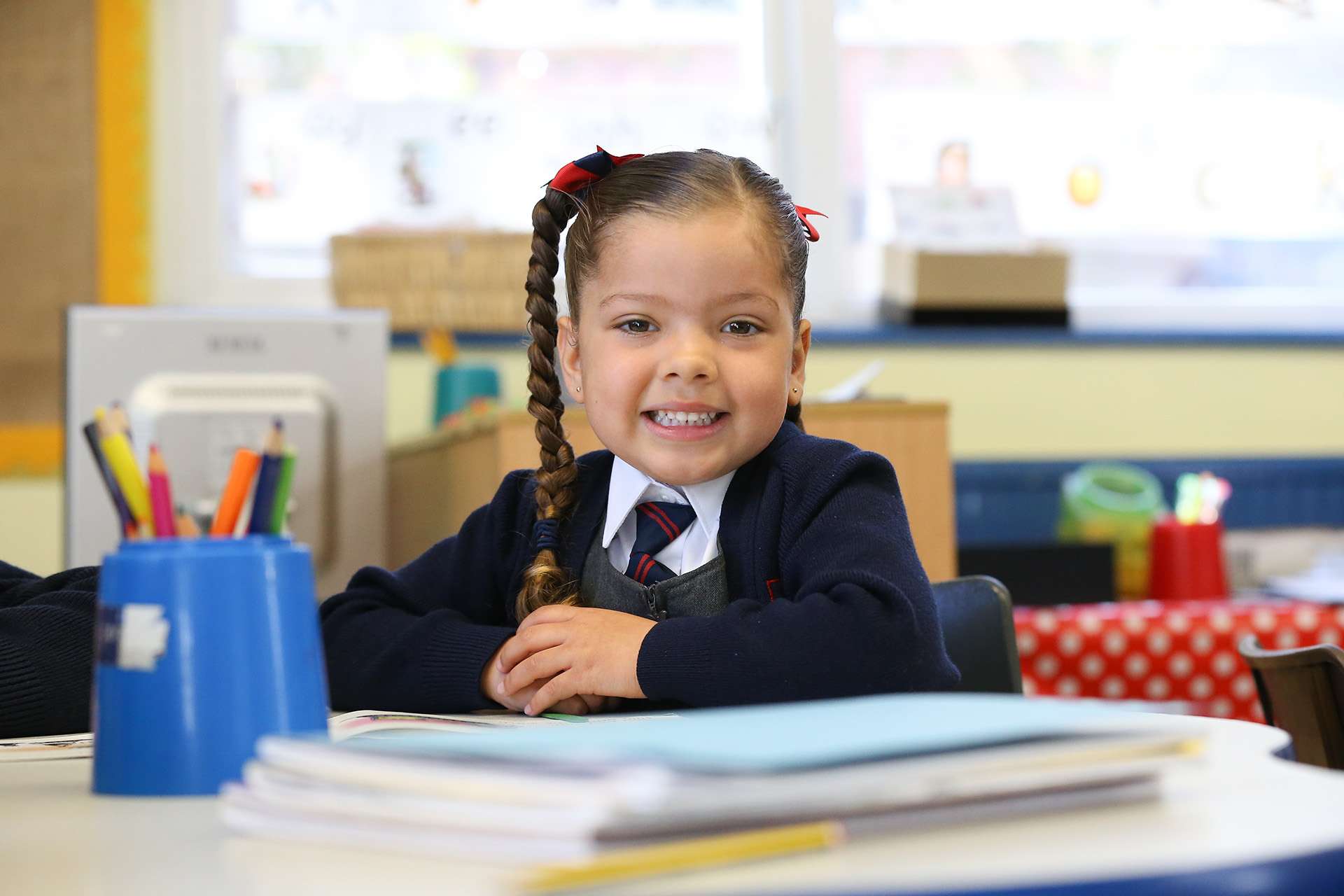Curriculum Overview
Curriculum Downloads
All Subject Yearly Overviews
All Year Group Yearly Overviews
Curriculum Policies
Intent
As a Catholic school, our core values are rooted deeply in faith and the Gospel. We teach children about respect, tolerance, commitment, compassion, courage, wisdom, love, faith, hope, integrity and justice. They permeate through everything we do. Our four house names reflect them: commitment, courage, faith and wisdom. The adults in our school model them and leaders lead by example through them. Our school rules, Respectful, Proud and Safe, complement a school ethos built on mutual respect and love and is underpinned by our golden rule: ‘treat others the way you would like to be treated yourself’ (Luke 6:31).
Our vision is ‘academic and personal excellence within an inclusive curriculum that excites children, encapsulates their natural curiosity, celebrates achievement and is based on children knowing more as well as being able to do more’. We value the individual. They must have the opportunity to achieve their full potential and be afforded the opportunity to expand upon their experiences, learn new skills, develop new talents and, above all, they must feel safe and happy in an environment that is conducive to learning and provides the care and support that is essential for them to thrive. Our Lady of Good Help Catholic Primary School is a school with a strong sense of community, one big family, and we want our pupils to have far-reaching ambitions and high expectations of themselves and each other; to do this, we have created a curriculum that truly meets the needs of all children.
Our curriculum provides children with the opportunity to: explore and wonder; build on prior knowledge; develop fluency in reading; broaden subject specific vocabulary; improve speaking and listening skills through discussion, debate, reasoning and explanation; be creative and present their work in a variety of ways – vital skills for a life of learning.
The curriculum is purposefully broad, balanced and ambitious. Lessons are planned sequentially, building upon prior learning. To enable pupils to learn new knowledge and skills, teachers ensure children have frequent opportunities to retrieve and recall this information and to make connections with other learning, helping them transfer this new knowledge into their long-term memory. The curriculum has clearly defined end points and provides the required knowledge and skills for future learning so that all children can flourish and be the very best they can be.

Implementation
Reading is of paramount importance and is taught rigorously throughout school. Phonics and early reading is taught through the Ruth Miskin programme ‘Read Write Inc.’ Children are taught new phonics sounds systematically, matching reading materials with sounds being learned at that moment and building knowledge step-by-step. We have developed a team of reading experts and the consistent approach from all of our Read Write Inc. teachers ensures a seamless transition through the phases. Regular assessment of children’s learning maintains focus, challenge and progress. We have a philosophy of ‘keep up not catch up’. We quickly identify children who need additional support and provide daily 1:1 tuition for those pupils to make accelerated progress. Children constantly revisit learned sounds and are taught to read ‘red’ words (common exception words) and ‘story green words’ with increasing accuracy to support overall reading fluency.
At OLGH, we develop a passion for reading from an early age and have invested heavily in new and exciting books, extending both staff and children’s knowledge of authors and using different texts to support learning across subjects. Children receive weekly family sharing books to enjoy at home alongside their Read Write Inc. reading books. Children read successfully at home which promotes a positive outlook and a sense of achievement. Once children have developed fluency and are competent readers, they move onto the Oxford Reading Buddy scheme. Our online resources afford children the opportunity to read a wide range of engaging books and test their skills at the linked quizzes. The programme cleverly assesses and enables children to progress to more challenging books when they are ready. Alongside this, children have access to ‘real’ books in their class libraries and the main school library. They are able to select books that pique their interest. Teachers use their expert knowledge to recommend quality texts that will broaden their pupils’ vocabulary and they encourage their pupils to do the same. Reading attainment and progress is tracked using standardised assessments from NFER each term.
Writing lessons are taught through a text-based approach. In Reception and Year 1, children are taught using Pie Corbett’s Talk for Writing. A key feature of this approach is that children learn to internalise the language structures needed to write through ‘talking the text’, as well as close reading. lt enables children to orally retell stories and a range of non-fiction, developing their speaking and listening skills in the process, as well as teaching the basic skills in writing. They are able to move from dependence towards independence, with the teacher using shared and guided teaching to develop the ability in children to write creatively. From Year 2, children are taught using Jane Considine’s ‘The Write Stuff’. Built into these units of work are experience days, which develop children’s understanding and enjoyment, and sentence stacking lessons, that teach them to write high-quality sentences, modelled by the teacher using a wide vocabulary and the appropriate grammar and punctuation for their year group. The progression in skills is clear and assessment is rigorous. Detailed planning has gone into selecting books to study with consideration given to choosing texts that highlight protected characteristics and allow children to see themselves in the protagonists, especially those from minority groups. Children are given the opportunity to demonstrate their progress through independent writing based on the texts they read.
In maths, we teach using a mastery approach. From Reception, children are taught using Power Maths. In Reception, children’s mathematical knowledge and skills are enhanced through continuous provision. As they progress through school, children are continually exposed to high-quality mathematical vocabulary, the opportunity to explain and reason as well as developing their mathematical fluency (through our daily basic skills maths sessions) – there is a focus on arithmetic, counting and recalling number facts. From Reception up to Year 2, children follow a programme of basic skills designed by the NCETM called ‘Mastering Number’. This provides essential knowledge and skills that is the foundation of many mathematical concepts so that children have a strong understanding of the number system. Models and images are consolidated and built upon to provide pupils with consistent approaches to the teaching of key skills. Great emphasis is placed upon scaffolding learning through the use of manipulatives to enable all learners to access the curriculum. Again, assessment is rigorous and progress is tracked using standardised assessments each term.
All learning across our whole curriculum follows the same principles: in each unit, prior learning is identified; lessons are planned to ensure work is age and stage appropriate and suitably challenging; key knowledge is identified with opportunities for retrieval practice and there are clear end points. Where possible, links are made within and between subjects. Learning is supported and enriched by field study, visits, workshops, artefacts, role-play and practical resources.
Assessment underpins the teaching process with staff continually checking pupils’ understanding, swiftly identifying misconceptions and altering their teaching to address the pupils’ needs. We use live marking during lessons so that feedback is immediate. It can be given in a variety of ways, written or oral depending upon the subject and the child’s individual needs. We place importance on high-quality feedback not on a particular style of marking, although we have a consistent method when giving written feedback in books.

Impact
Our subject leaders and senior leaders place great importance on measuring the impact of their actions and of our curriculum by speaking to all staff, children and parents, monitoring teaching and learning using a range of strategies and analysing performance data. The impact of our curriculum and extra-curricular programme is measured by pupils’ level of enjoyment, their attainment and progress, and their participation rates (extra-curricular). Parents provide crucial insight into how we perform as a school. Their positive feedback and suggestions as to how we can continue to improve are vital. We are committed to improving the lives of our children and families and ensuring that all stakeholders’ mental health and wellbeing is prioritised.
Through high expectations, teacher clarity, clear modelling, frequent retrieval practice and well-scaffolded lesson sequences, children will make great progress across the curriculum. They will take pride in all that they do, always striving to do their best. They will demonstrate the Gospel values of commitment, courage, faith and wisdom, in particular, and the ability to be resilient and persevere when they encounter challenges. They will develop a sense of responsibility and become confident in their own abilities. They will be respectful, proud and safe, demonstrating inclusive attitudes and have a sense of their role in our wider society.
From a range of starting points, we strive for all children to make strong progress academically, emotionally, creatively, socially and physically. Knowledge, understanding and skills are secured and embedded so that children are able to achieve their potential and are fully prepared for secondary school. By the time our children leave OLGH, we want them to be confident, articulate, knowledgeable, upstanding members of the community, ready to continue their learning journey.

Early Years Foundation Stage
Children are taught phonics as soon as they start at our school through Read, Write Inc. Every effort is made to enable children to keep up and travel along the journey of learning to read together by incorporating timely and frequent 1:1 support. Once they are ready, children are given home reading books and encouraged to read at home with the support of adults.
Children learn through a thematic approach. They develop their speaking and listening through a range of communication and language techniques. Children are taught to orally retell stories and other genres such as instructions before being able to write their own independently, using Talk4Writing strategies. They have numerous opportunities to enhance these skills during continuous provision, for example, in the role play area, and other areas of learning. On top of this, we ensure all children receive an intervention called Talk Boost and we pay particular attention to subject-specific vocabulary to broaden our pupils’ language skills.
For maths, children explore their environment using Power Maths, like the rest of the school, as a stimulus. Children build knowledge and confidence in number using Mastering Number from NCETM and develop their maths skills independently within continuous provision.
Physical development is given prominence. Children are able to take part in weekly PE sessions and are given ample opportunities to explore the outdoors using their fantastic outdoor provision. Their understanding of the wider world is developed through local area walks and visits as well as paying particular attention to the seasons, festivals and celebrations. They are also provided with ample opportunity to be creative – learning to paint, draw, play music, dance and sing nursery rhymes to name a few.
As the year progresses, we prepare our children well for the transition to Year 1, ensuring they are well-supported as they take their next big step.
Key Stage 1 and 2 Curriculum
We have developed our curriculum with thought and care using the latest research and up-to-date teaching strategies. Subjects covered within Key Stage 1 and 2 are: RE, phonics and reading, writing, maths, science, art and design, computing, design and technology, geography, history, music, R.S.H.E., P.E. and Spanish (KS2). Our broad and aspirational curriculum enables children to expand their language and vocabulary so that they can speak like experts. Care and attention has been given to ensuring that all subjects are given prominence within our curriculum.
We ensure children have access to high-quality resources to support each subject:
- RE: Come and See
- Reading: Read, Write Inc. and our own ‘Active Reading’ (whole class teaching of reading format)
- Writing: Talk 4 Writing (Year 1) and The Write Stuff (Year 2 – Year 6)
- Maths: Power Maths and Mastering Number (NCETM)
- Science: HEP Science
- Humanities: Opening Worlds (KS2)
- PE: PE Passport
- Art, DT & RSHE: Kapow Primary and Journey in Love (RSE)
- Music: Kapow Primary and Resonate Music Teacher
- Computing: Developed by computing experts, MGL
- MFL (Spanish): Local Authority Specialist Teacher and Planning
Subject Yearly Overviews and Year Group Yearly Overviews map out the learning in core and foundation subjects across Key Stage 1 and 2. Subject leaders have adapted schemes of learning to ensure they meet the needs of our pupils and have mapped out the progression of knowledge and skills for each unit of work. Half-termly Curriculum Overviews, which contain more detail of what the children willl be learning, are uploaded to the website and sent to parents to ensure that skills taught in school can be reinforced at home. Subject leaders have also carefully considered the vocabulary taught and the end points for assessment to allow teachers to plan and assess effectively.
Additionally, weekly newsletters are shared with families to enable discussions about learning to take place at home. Our homework policy is to focus on what has been taught in school to reinforce key basic skills in reading, spelling & grammar and number facts. Children also get the opportunity to do creative home projects of their choosing from their current learning.
Our curriculum is filled with first-hand learning experiences, including visits to other settings, making good use of experts from the local community and subject-specialists that come into our school to further enhance the experiences of the children. Children are encouraged to develop their personal character and commitment by attending a range of enrichment clubs such as: dance, art, a range of sports, reading, computing, mindfulness, board games and much more. They also have the opportunity to represent our school at inter-school competitions and house (intra) competitions in our school.

See our Curriculum on Twitter
Link to @OLGHLiverpool to see more tweets about our school curriculum

